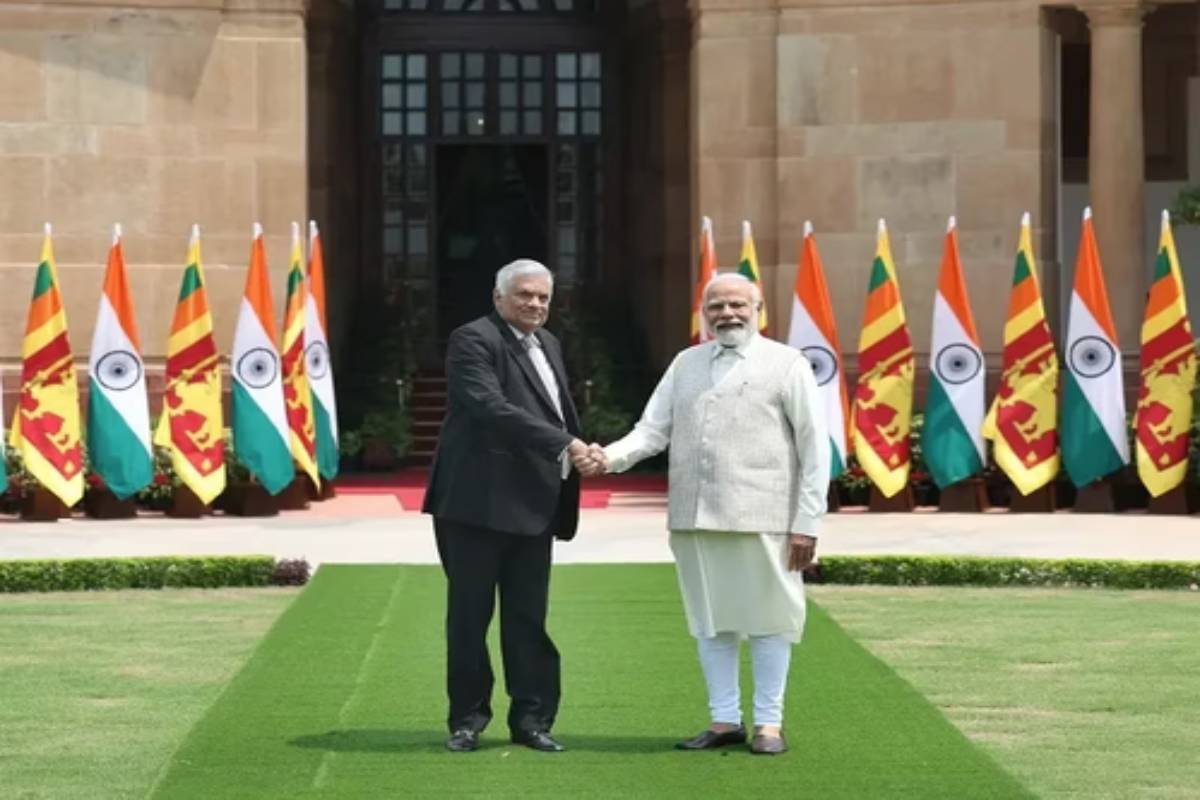In a historic and symbolic moment, India and Sri Lanka have reignited a forgotten connection by resuming ferry services between the two countries after a staggering four decade hiatus. The maiden voyage of the high-speed ferry, Cheriyapani, on October 14, is more than just a transportation milestone.
It marks a new era in diplomatic relations, trade and tourism between the two neighbouring nations. The rekindling of this ferry service carries with it a profound historical significance. Decades ago, the Indo Ceylon Express that plied the waters between Thoothukudi and Colombo through then Madras was an emblem of regional connectivity and cooperation. However, due to the unfortunate Sri Lankan civil war in 1982, the service ceased, leaving a void that has now been filled. This revival represents the restoration of lost connections and reopens the gateway to a brighter future.
Advertisement
Prime Minister Narendra Modi rightly acknowledged the importance of this renewed link. His words, “We are embarking on a new chapter in the diplomatic and economic relations between India and Sri Lanka,” resonate deeply. The ferry service is not just about a physical voyage. It is about connecting people, cultures and economies. It symbolises the shared vision of a prosperous future and enhanced cooperation between the two nations. One of the key aspects highlighted by the Prime Minister was the potential for the ferry service to boost trade between the two countries.
This is more than just a passing statement. Improved connectivity via sea routes can significantly enhance bilateral trade. With faster and more convenient transportation of goods, businesses in both nations can benefit from reduced transit times and, especially, costs. This, in turn, can foster economic growth, open up new opportunities and create jobs on both sides. The ferry service could be a catalyst for deeper trade ties, enhancing economic stability in the region.
Tourism stands to be a major gainer from this renewed connectivity. India and Sri Lanka are both rich in cultural heritage, stunning landscapes and historical sites. With the ease of travel brought about by the ferry service, tourists from both nations will have a seamless way to explore each other’s treasures. It is not just about attracting foreign tourists. It is about strengthening regional tourism as well. Citizens of both India and Sri Lanka will now find it more convenient to explore neighbouring regions.
This will benefit hotels, restaurants, and tour operators, generating economic benefits for local communities. Furthermore, it’s not just about trade and tourism. It is about people-to-people relations. The renewed ferry service fosters stronger bonds between individuals on both sides of the Palk Strait.
In an era where connectivity often happens through digital screens, this physical connection is a testament to the enduring significance of human interaction. The revitalisation of the India-Sri Lanka ferry service represents a leap of faith in the potential of cooperation and friendship between nations.









